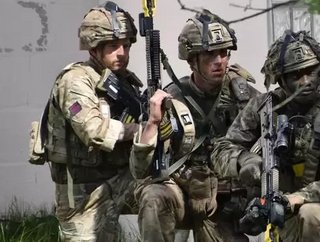AI used on British Army operation for the first time

The British Army has used Artificial Intelligence (AI) for the first time during Exercise Spring Storm, as part of Operation Cabrit in Estonia.
Operation Cabrit is a Nato exercise, which involves British service members working to tighten Euro-Atlantic security, in conjunction with French, Danish and Estonian forces. During the annual Nato event, the technology was used by soldiers to carry out live-fire drills.
Soldiers from the 20th Armoured Infantry Brigade used an AI engine that provides information on the surrounding environment and terrain. Through the development of automation and smart analytics, the engine is able to rapidly cut through masses of complex data. It provides efficient information regarding the environment and terrain, enabling the Army to plan its appropriate activity and outputs.
'First of its kind'
The deployment was a first of its kind for the Army and was built on collaboration between the MoD and industry partners, designing the AI to match the way the Army is trained to operate.
“The lessons this has provided are considerable, not just in terms of our support to deployed forces, but more broadly in how we inform Defence’s digital transformation agenda and the best practices we must adopt to integrate and exploit leading-edge technologies.” said the Army’s Director of Information, Major General John Cole.
The AI capability can be hosted in the cloud or operate in an independent mode, provides soldiers with instant planning support and enhancing command and control processes.
“This was a fantastic opportunity to use a new and innovative piece of technology in a deployed environment. The kit was shown to outperform our expectations and has clear applications for improving our level of analysis and speed at which we conduct our planning. I’m greatly looking forward to further opportunities to work with this.” said 20th Armoured Infantry Brigade and user of the AI, Major James Mcevoy.
“In the future, the UK armed forces will increasingly use AI to predict adversaries’ behaviour, perform reconnaissance and relay real-time intelligence from the battlefield,” he added.
AI and the Army
AI has already been incorporated in a number of military initiatives, including the Future Combat Air System, and is the focus of several innovative funding programmes through the Defence and Security Accelerator.
Announced by the Prime Minister last November, Defence has received an increase in funding of over £24 billion across the next four years, focusing on the ability to adapt to meet future threats. Further outlined in the Defence Command Paper, the MOD intends to invest £6.6billion over the next four years in defence research and development, focusing on emerging technologies in artificial intelligence, AI-enabled autonomous systems, cyber, space and directed energy systems.






